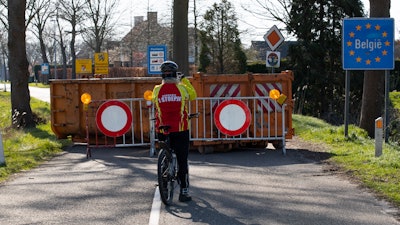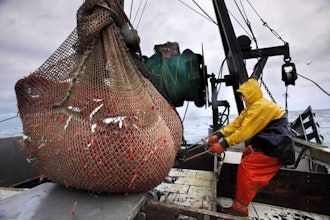
BRUSSELS (AP) — The Dutch government decided to close bars and restaurants as of Wednesday as part of a “partial lockdown" that will last at least four weeks to counter the sustained surge in coronavirus cases across the Netherlands.
Prime Minister Mark Rutte said that the nation needed to move a step closer to a full lockdown because otherwise hospitals would become so overburdened that people with other urgent needs would be unable to get treatment.
“We have to be tougher on ourselves," Rutte said in an address to the nation. The measures don't affect the school system apart from a extension of the mandatory wearing of facemasks. “Education is too important."
Over the past several weeks, few other countries in Europe saw such an increase in cases as the Netherlands, and Rutte said the numbers were “bizarrely high.”
In the week ending Tuesday, new cases stood at 43,903 in the nation of 17.3 million, an increase of around 60% over the preceding week. People ending up in intensive care units shot up to 192 from 121, and coronavirus deaths reached 150 compared to 89 the week earlier. The Amsterdam and Rotterdam regions are the current hotbeds of the virus in the Netherlands.
Rutte said people's attitudes were a big part in the resurgence.
“All together too many people didn’t respect the rules and we could do not anything else other than increase measures. The key is our behavior," Rutte said.
And he warned that “if things don't go well over the next weeks, we will move toward a full lockdown." Because growth of COVID-19 is so fast, Rutte said, “the hammer to kill the virus must be big enough."
To make sure that revelers unable to go to bars wouldn't party at home, the government also banned the sale of alcohol after 8 p.m. The measures come into effect Wednesday evening.
In additional measures, the government said that any household would be able to receive no more than three guests per day. Public transport travel should be limited as much as possible.
The official death toll from the virus in the Netherlands is 6,587. Rutte warned that cancer or heart patients, for example, would be at risk of dying, if COVID-19 patients overwhelmed hospitals again, forcing delays in other treatment.
“Postponed care leads to health damage and sorrow," he said.






















